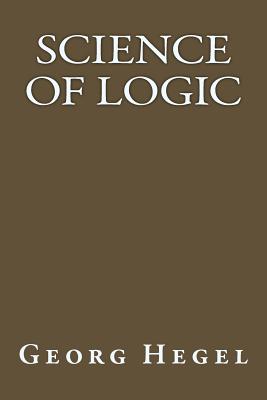Science Of Logic

Science Of Logic
In the Science of Logic, Hegel sets out to show that the process by which consciousness assimilates objects into mental concepts is more dynamic and, one might say, messier then Kant describes it. Just as he does in the Phenomenology, Hegel traces here the movement of consciousness, or the idea, from basic categories to more complex ones. Consciousness attempts to grasp objects at a most basic level, finds this first attempt somehow unsatisfying as exposing inadequacies or contradictions, and proceeds to a higher level, and so on. In the Phenomenology and elsewhere, Hegel seems to imply that this dialectical unfolding is an inherent feature of the world we inhabit, governing history and culture. In Logic we see that the dialectic is a phenomena of ideas. But the two dimensions of reality (i.e., history, culture, and the world in general) and our ideal, mental, or conceptual grasp of things are not really separable. The world we live in is a world created by ideas. But our ideas do not emanate from the mind of a single individual, as other idealists such as Kant seem to imply. Concepts have an objective status. They exist outside of any individual as taken-for-granted reality. They belong to common cultural understanding.
PRP: 74.01 Lei
Acesta este Prețul Recomandat de Producător. Prețul de vânzare al produsului este afișat mai jos.
66.61Lei
66.61Lei
74.01 LeiLivrare in 2-4 saptamani
Descrierea produsului
In the Science of Logic, Hegel sets out to show that the process by which consciousness assimilates objects into mental concepts is more dynamic and, one might say, messier then Kant describes it. Just as he does in the Phenomenology, Hegel traces here the movement of consciousness, or the idea, from basic categories to more complex ones. Consciousness attempts to grasp objects at a most basic level, finds this first attempt somehow unsatisfying as exposing inadequacies or contradictions, and proceeds to a higher level, and so on. In the Phenomenology and elsewhere, Hegel seems to imply that this dialectical unfolding is an inherent feature of the world we inhabit, governing history and culture. In Logic we see that the dialectic is a phenomena of ideas. But the two dimensions of reality (i.e., history, culture, and the world in general) and our ideal, mental, or conceptual grasp of things are not really separable. The world we live in is a world created by ideas. But our ideas do not emanate from the mind of a single individual, as other idealists such as Kant seem to imply. Concepts have an objective status. They exist outside of any individual as taken-for-granted reality. They belong to common cultural understanding.
Detaliile produsului










